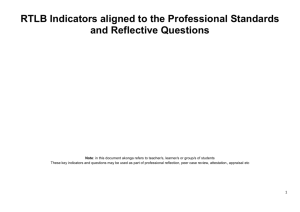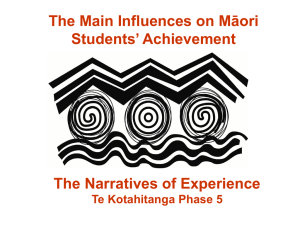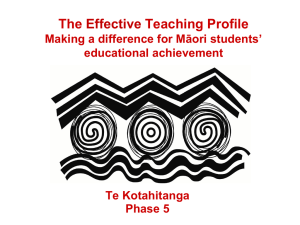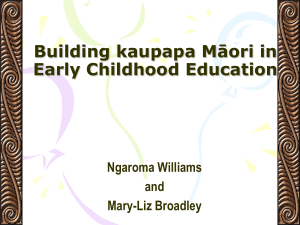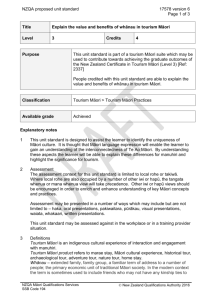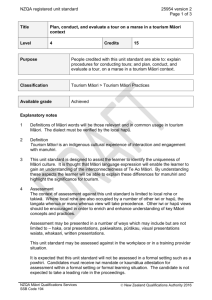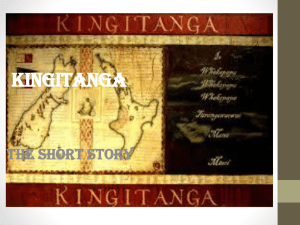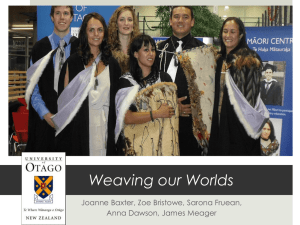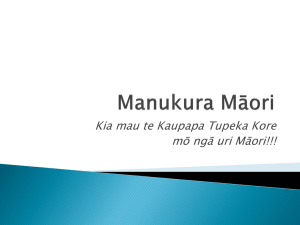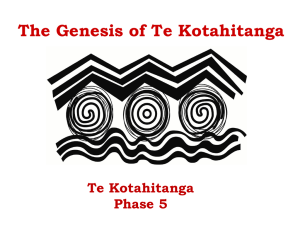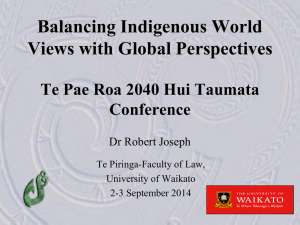Powerpoint Template - Māori branding
advertisement
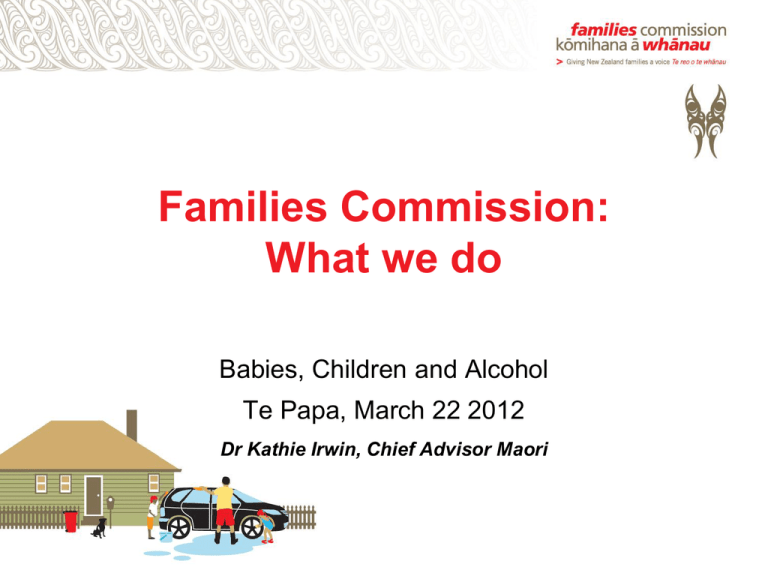
Families Commission: What we do Babies, Children and Alcohol Te Papa, March 22 2012 Dr Kathie Irwin, Chief Advisor Maori What we do: we listen, we add value, we act. We: Honour family and whānau. Honour Māori as Treaty partners. Create new solutions. Summarise existing knowledge. Connect with others. Influence through what we know. Operating Environment Autonomous Crown Entity (ACE) Families Commission Act (2003) Families Commission must have regard to: - the needs, values and beliefs of Māori as tangata whenua (Section 11a) - factors that help to maintain or enhance whānau resilience or strength (Section 7) Our priority areas 1. Connected communities and support structures; 2. Economic wellbeing; 3. Safe and resilient relationships 4. Whānau rangatiratanga (Whanau empowerment). 1. Connected communities and support structures: 2010 Paths of Victory: Victory Village (Victory Primary School and Victory Community Health Centre): A case study Working Together: The Victory Primary School Story DVD 2. Economic Well-Being: 2010 Whānau Taketake Māori: Recessions and Māori resilience. This report identifies that whānau resilience can only be understood in the full context of history, cultural values and practices. 3. Safe and Resilient Relationships > The White Ribbon Campaign 2006 > The White Ribbon Campaign challenges men to lead and take responsibility, and talks to men in ways that men understand. 4. Whānau Rangatiratanga: 2011 > Whānau Yesterday Today Tomorrow > DVD Working with Whānau •Kaupapa Māori Methodology •Māori worldview •Narratives of Whānau Success •Māori succeeding as Māori Research Design, Methods and Issues > Kaupapa Māori Research, informed by Māori cultural knowledge, method and practice (Smith, 1999; Cunningham, 2000) > Inside out, within the Māori worldview looking out > Endogenous Development, development from within (Haverkort et al, 2002) > By Māori, for Māori, about Māori and in places in Māori (Penetito, 1988) > Māori developed, designed and delivered (TPK, 2010) > Narrative accounts, voices of whānau, Ko te korero te kai a te rangatira > Success, in Māori terms Māori Cultural Infrastructure 1. Māori People 2. Māori Worldview 3. 1300 Marae (www.tpk.govt.nz) 4. Whānau, Hapu, Iwi Social Structure 5. The Environment 6. Broadcasting and IT Māori Development and Nation Building > (See Families Commission submission on the Alcohol Reform Bill) > 1300 marae (see www.tpk.govt.nz): > Many marae are alcohol free, smokefree. > Alcohol and smoke-free marae are examples of Māori leadership in this area. > Alcohol free marae are exemplars of cultural models creating powerful transformative change. Marae: Alcohol Free Zones >Marae as >Alcohol free alcohol free marae have a zones are an role to play in important part of the work of the story of spreading alcohol positive consumption messages about and the alcohol management of consumption this in NZ. and management.

